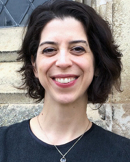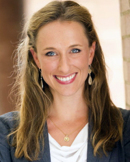Two University of Wisconsin law professors – Mitra Sharafi and Gwendolyn Leachman – recently won awards from the Law and Society Association for works published in 2014.
The Law and Society Association is a leading professional organization for scholars interested in law and the social sciences. Sharafi and Leachman join a long line of UW Law School faculty, including Professor J. Willard Hurst, who have kept Wisconsin at the forefront of law and society scholarship. Hurst, recognized nationally as the founder of modern legal history, taught at the Law School between 1937 and 1981.
The two professors will receive their awards at the annual meeting of the Law and Society Association, to be held in Seattle in May.
Mitra Sharafi wins the J. Willard Hurst Prize

Mitra Sharafi
Sharafi’s winning book, “Law and Identity in Colonial South Asia: Parsi Legal Culture, 1772–1947,” received the J. Willard Hurst Award for the best work in sociolegal history. Published last year by Cambridge University Press, the book explores the legal culture of the Parsis, an ethnoreligious community that settled in large numbers in 10th-century India.
"It is a real honor to be awarded the Hurst Prize from the LSA, an organization I've been involved with since 2005, when my colleague Marc Galanter and I started the South Asia Collaborative Research Network,” Sharafi says. “But it's also a pleasure to receive a prize named after J. Willard Hurst, the pioneer in legal history who taught here at UW Law School. I am doubly thrilled."
She says that, from the late 18th century through India’s independence in 1947, the Parsis embraced their British colonizers’ legal system to a degree few other minority cultures have done. It was a strategy of “extreme legalism” that worked in the group’s favor, she argues.
Acting as lawyers, judges, litigants, lobbyists and legislators, the Parsis played a large role in Indian government and in the court system, which helped them both shape their own legal destiny and preserve their cultural identity. Though the book exposes a litigious culture whose public disputes often tore families apart, Sharafi believes the Parsi example may hold promise for minority groups today: “macro-benefits emerged from the micro-pain,” she says.
Gwendolyn Leachman receives annual dissertation prize

Gwendolyn Leachman
Leachman, who joined the UW Law faculty last year, won the LSA’s dissertation prize for her work, “Legalizing LGBT Politics: Litigation and the Construction of Social Movement Agendas.”
“The joke that you always hear as a doctoral student is that you spend almost a decade of your life writing a dissertation that nobody but your advisors will ever read. But when you’re writing about a movement that breaks new ground every day, the wait for a larger audience can be excruciating,” she says. “I hope this award attracts attention to my project and the issues of law and social change it raises, which are very important to me.”
Leachman’s dissertation examines how litigation, as opposed to strategies such as lobbying and protest-based activism, has shaped the LGBT movement’s agenda. Taking disputes like marriage equality to the courts tends to get the attention of the media, and with media attention comes momentum, she says.
“But the courts offer a forum for only those grievances that can be translated into legal claims,” according to Leachman. An agenda focused on litigation may mean that lesser-known issues of freedom and fairness for lesbian, gay, bisexual and transgender people get sidelined.
Learn more about these award-winning projects at the Law and Society Association website.
Submitted by Tammy Kempfert on July 9, 2019
This article appears in the categories: Features, UW Women in Law
Related employee profiles: Mitra Sharafi, Gwendolyn Leachman